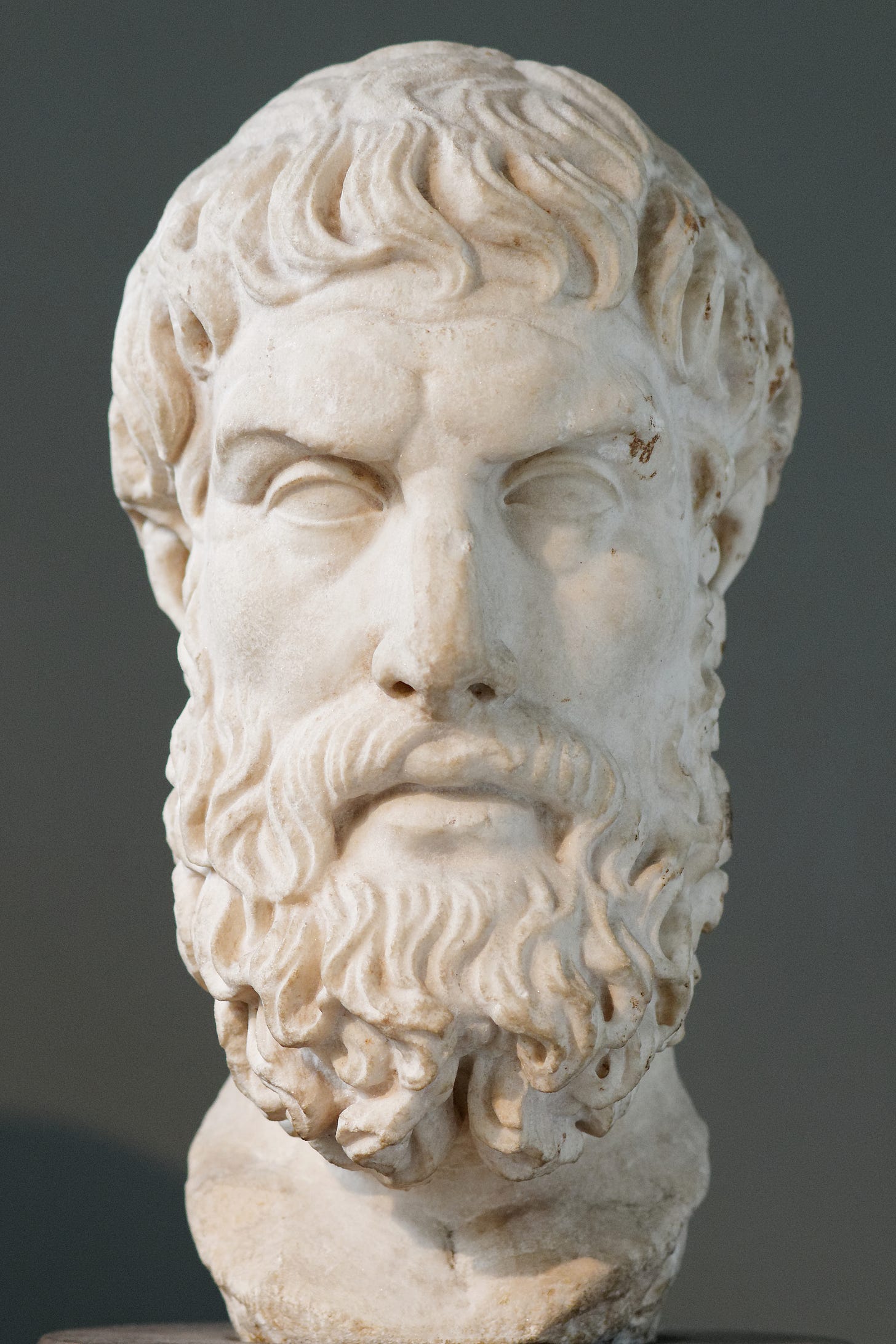Insights into Happiness: 4 Lessons from the Greek Philosopher Epicurus
Epicurus is one of the most prolific — and most misunderstand — ancient Greek philosophers.
He dedicated himself to developing a practical philosophy for a happy life.
Here are four of his most important lessons as he shared in a letter to Menoeceus…
Happiness is life’s most important subject.
“So we must exercise ourselves in the things which bring happiness, since, if that be present, we have everything, and, if that be absent, all our actions are directed toward attaining it.”
Epicurus explained the main aim of life should be cultivating the wisdom necessary to live a good life. As he shared above, happiness — the pursuit of pleasure or contentment and the avoidance of pain — is the motivating factor behind all human action.
When we have happiness we need no more — when we don’t have it, it is what we desire most.
Make peace with the inevitability of death.
“Accustom yourself to believe that death is nothing to us, for good and evil imply awareness, and death is the privation of all awareness; therefore a right understanding that death is nothing makes the mortality of life enjoyable, not by adding to life an unlimited time, but by taking away the yearning after immortality… Death, therefore, the most awful of evils, is nothing to us, seeing that, when we are, death is not come, and, when death is come, we are not.”
Epicurus here explains that pain or pleasure, good or pain, fear or desire, etc. all depend on awareness. The are dualities created by the human mind. Death, by definition, is the end of awareness. It is nothing, so why should we fear it?
Once we understand there is nothing to fear, we can fully embrace living life whilst we have the chance.
Understand the future is both certain and uncertain.
“We must remember that the future is neither wholly ours nor wholly not ours, so that neither must we count upon it as quite certain to come nor despair of it as quite certain not to come… [S]ome things happen of necessity, others by chance, others through our own agency. ”
This is a useful middle ground between two unhelpful philosophical extremes…
We may think the future is entirely up to us. That we each have absolute control over our lives. However, accidents, disasters, and misfortunes happen all the time. So this can be a rather troublesome philosophical perspective when the inevitable moments of bad luck arise.
Conversely, we may think we have no control at all — it’s all a matter of destiny that’s out of our hands. Of course, this denies human agency and leads to a very disempowering way of life.
This healthy middle ground implies that we ought to recognize much of this life is “out of our hands” and yet we still have enough agency to shape our futures. So control what we can control and accept the rest.
Prudence, the knowledge of what pleasures to pursue, is key.
This is where Epicureanism is most misunderstood. We tend to think of it as “hedonism” — just doing as much as possible of the things that bring pleasure.
“By pleasure we mean the absence of pain in the body and of trouble in the soul. It is not an unbroken succession of drinking-bouts and of merrymaking, not sexual love, not the enjoyment of the fish and other delicacies of a luxurious table, which produce a pleasant life; it is sober reasoning, searching out the grounds of every choice and avoidance, and banishing those beliefs through which the greatest disturbances take possession of the soul. Of all this the key is prudence. For this reason prudence is a more precious thing even than the other virtues…”
What prudence means here is “temperance” or “moderation”.
Yes, pleasure is what makes the good life. But fleeting pleasures like drinking, drugs, or other addictions ultimately lead to more pain than pleasure. Prudence implies that we carefully weigh and balance the pleasure and pain that come from each decision we make, and live with intention and calculation to optimize for overall happiness.
Epicurus offers a useful prescription for the good life…
We must prioritize seeking out the wisdom of what makes for a happy life. We must go beyond the fear of death in order to embrace life without fear. We must recognize the inherent uncertainty as well as the agency we do have in shaping the future. And we must carefully balance the pursuit of pleasures for long-term happiness.
Your happiness nerd,
Jackson Kerchis
See his Letter to Menoeceus — http://classics.mit.edu/Epicurus/menoec.html



